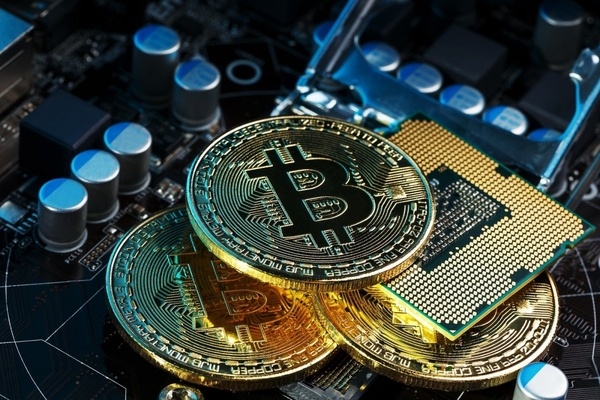
This year marked a major milestone for the global financial technology industry with many notable events – Bitcoin just recently underwent its third halving, the emergence of China’s digital currency or DC/EP, and the overhauled Libra is aiming for a launch before the year ends. These three giants are meant to clash in a battle where the winner will set the foundation of the future of money for decades to come.
Bitcoin: Money by the people, for the people
In this battle, Bitcoin has the advantage of time over the other two options, with over a decade’s worth of flawless records reflecting sustained growth and impenetrable security. The cryptocurrency will soon face a major test to prove itself as “hard money” especially in the current economic landscape, where central banks are injecting trillions of freshly printed dollars into the system to keep the economy afloat. Such unprecedented amounts of excess liquidity flooding the market is sure to increase the risk of currency destabilization and inflation in the mid to long term.
The limited supply and Store of Value properties of Bitcoin will play a big part if, by any chance, the US dollar begins to crumble. The recent halving only emphasized the deflationary nature of Bitcoin, reducing its annual inflation rate to be on par with gold. As the new supply shrinks, only a slight increase in demand can have a substantial positive impact on its price. If Bitcoin’s value continues to appreciate against dollars, more people will consider migrating into Bitcoin as it proves to be a safer way to store their wealth.
In recent months, news of countries suffering from hyperinflation such as Venezuela and Iran, where Bitcoin is being traded at a large premium compared to the world’s market, have emerged. This is a shred of clear evidence that despite a decline in fiat currency, Bitcoin will still be able to uphold its value against any sort of inflation.
Decentralization is another core property of Bitcoin as it cannot be confiscated, frozen, or banned, like we have witnessed what governments did with people’s bank accounts in Argentina and Lebanon. The current economic climate is truly showing that the king of cryptocurrency is a true savior for the people in times of desperation.
Libra: Capitalism and free market
Since Facebook revealed its plans for the creation of Libra in 2019, there has been plenty of criticism and push backs from financial regulators and governments across the globe. In light of this, Facebook decided to reconsider its original plan and eventually came up with a revised version in early 2020, replacing its initial plan to launch a global, unified stablecoin backed by multiple fiat currencies with firstly, multiple stablecoins, each backed by a single currency and secondly, a global stablecoin pegged to a basket of these various single-currency stablecoins.
The new Libra aims to be a platform for central bankers to create new sovereign digital currency pegged to their respective currencies. The first phase will support main currencies such as USD, EURO, GBP, and SGD.
Libra also proposed the Global Libra which is a multi-currencies stablecoin backed by the aforementioned single currency stablecoins. The Global Libra allows users partaking in Facebook’s ecosystem, including users of Whatsapp and Instagram, to freely send and receive money as easily as they would send emojis. This opens new doors for shops and retailers on Facebook’s platform to sell their goods and services across the world without having to rely on credit cards or wire transfers.
At the moment, Facebook is in the process of applying for the license from overseeing regulatory bodies in the US and Switzerland. Ultimately, the attempt will shift the Libra Association from a non-profit organization to a licensed financial institution.
However, the Global Libra will be subjected to stricter rules and regulations including anti-money laundering (AML) and Combating the Finance of Terrorism (CFT) measures. The rules are set for businesses such as commercial banks, licensed and unlicensed crypto exchanges, as well as Super App providers, all of which will have to seek regulatory approval before connecting with the Global Libra.
The core strength of Libra stems from its massive user base of more than 3 billion people across the globe, who are likely to embrace the new technologies Facebook has to offer. The social media giant is expected to launch new products revolving around the implementation of Libra as well.
Libra represents the modern world of capitalism and the free market as it connects the world and promotes more competition in the world economy. Some rules and regulations will be in place to oversee the ongoing activities that can compromise the freedom of it users, but licensed and regulated platforms will provide a sense of security which many users prefer.
Digital Yuan: China’s attempt to replace dollars
After multiple years of research and development, the digital yuan under the name ‘Digital Currency/Electronic Payment’ (DC/EP) is now progressing in its testing phase. The currency is still under the full control of China’s central bank, and can be seen as the digital format of the physical form of renminbi.
The reason behind the push for DC/EP is to reduce the high cost of maintaining the condition of physical banknotes and money, while also pushing for higher velocity in the circulation of cash which in turn drives up the national Gross Domestic Product (GDP). Citizens will be able to send and receive money with the digital yuan even in the absence of internet connectivity via NFC technology, along with multiple layers of protection to prevent counterfeiting.
The government will continue to retain full control over the money supply. Equipped with big data and AI technologies, the communist party will be able to track every transaction made by its citizens.
China is in the lead when it comes to progressing into a fully cashless society. Chinese citizens are very accepting of digital payment solutions from the widespread usage of Alipay and WeChatPay, which have billions of users combined worldwide.
The release of the DC/EP will not only help the millions of unbanked populations living in the rural areas of China, but will also spread China’s influence across the Belt Road Initiative (BRI), into less developed countries in Asia and Africa.
History may now be at a turning point where the digital yuan is set to overtake the overarching US dollar, similar to how the dollars gained pre-eminence after the second World War. The US federal reserve will have to tread very carefully with its monetary policy, as failing to uphold the dollar’s value will quickly send it spiralling into an uncontrolled situation of hyperinflation.
Conclusion
All three currencies exhibit different areas of strengths. Firstly, Bitcoin represents an open-source, decentralized, and unconfiscatable currency that people can migrate to if their respective national fiat currencies collapse under their own weight.
Facebook’s Libra has a strong user base worldwide and is now willing to play by the rules set by the governments. On the other hand, while the DC/EP may be limited to domestic use in the first few years, we can expect China to expand its influence via its financial and diplomatic policies.
The battle for supremacy has begun, but one thing is for certain – via these new technologies and products, more than 1.7 billion unbanked people around the world can now be co-opted into a new financial world without borders.


